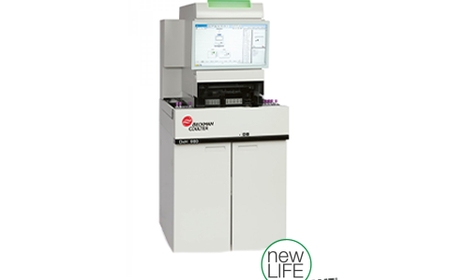From Learner to Logistic Pro: A Driving Licence Can Get You There
A driving licence is often viewed as a basic legal document—something you need to drive a vehicle and avoid penalties. But in reality, it’s so much more

Adriving licence is often viewed as a basic legal documentsomething you need to drive a vehicle and avoid penalties. But in reality, its so much more. For millions of individuals across India and the world, a driving licence represents independence, opportunity, and a potential career path. One of the most promising and fast-growing sectors where a driving licence opens doors is logisticsa field that forms the backbone of our economy.
From a young learner who dreams of driving to a professional managing deliveries or transporting goods, the journey begins with just one step: securing a valid driving licence. Let's explore how that simple act can lead to a fulfilling career in the logistics industry, and why now is the best time to turn your licence into a livelihood.
1. The Learner's Beginning: Building the Foundation
Every skilled driver starts with a learners licence. It is the legal permission that allows an individual to practice driving under supervision. In this stage, learners develop a sense of responsibility, road etiquette, and vehicle control. While it might seem like just a formality, this stage is vital in shaping a safe and confident driver.
Learners who take this phase seriously often go on to not just pass the test but build habits that make them ideal candidates for logistics jobs, where road discipline, punctuality, and vehicle maintenance are key.
2. Why a Driving Licence Matters in Logistics
In logistics, your driving licence is your professional badge. Whether you aim to become a delivery executive, a truck driver, or even a fleet manager, the foundation is the samea valid, appropriate category driving licence.
Heres how your licence acts as a passport to the logistics world:
-
Job Eligibility: Most delivery jobswhether for food, courier, e-commerce, or freightmandate a valid driving licence.
-
Commercial Licence for Heavy Vehicles: To drive trucks or commercial vehicles, you need a commercial driving licence (CDL). Once obtained, it significantly boosts your employability.
-
Regulatory Requirement: Logistics firms require drivers who are licensed, not only for compliance but for insurance coverage, safety audits, and legal operations.
-
Mobility Equals Income: With a licence, you can explore jobs across cities, states, or even countries.
3. India's Booming Logistics Sector: A Goldmine of Opportunities
The Indian logistics sector is growing at an unprecedented rate. According to estimates, the industry is expected to reach $380 billion by 2025. This growth is fueled by e-commerce expansion, digital transformation, and rising demand for timely, efficient delivery services.
The result? A constant need for trained, licensed drivers.
From gig work with platforms like Swiggy, Zomato, Amazon, and Flipkart to long-haul trucking for FMCG and industrial supply chains, every role starts with a licence. And with the government's focus on improving infrastructure and digital integration, licensed professionals in this field are more in demand than ever.
4. Driving Licence as a Gateway to Entrepreneurship
Not everyone who gets a licence wants to work under someone else. A large number of driving licence holders in logistics end up starting their businesses. Here's how:
-
Becoming an Independent Delivery Partner: Many online platforms allow licensed individuals to register independently.
-
Starting a Small Transport Business: With a commercial licence, you can operate goods carriers and build your own logistics service.
-
Fleet Ownership: Scale further by buying and managing a fleet of vehicles for logistics contracts.
In every case, the journey starts with a single driving licenceand grows into a full-fledged enterprise.
5. Skill Building Beyond the Licence
While the licence is the basic requirement, many logistics jobs require additional skills:
-
GPS Navigation & Digital Tools: Most modern logistics systems rely on route optimization, mobile apps, and digital delivery records.
-
Vehicle Maintenance Knowledge: Minor repairs and upkeep skills are a bonus in logistics careers.
-
Soft Skills: Communication, time management, and customer service are crucial for last-mile delivery and client interactions.
Today, government initiatives like the PMKVY (Pradhan Mantri Kaushal Vikas Yojana) and Logistics Skill Councils are offering skill-based training programs that include driving, navigation, and more, helping drivers transition into professional roles.
6. Types of Driving Licences and Their Relevance in Logistics
Understanding which type of driving licence aligns with your logistics career path is crucial:
-
LMV (Light Motor Vehicle): Suitable for bikes, scooters, cars, and small vans used in local delivery.
-
HGV/HTV (Heavy/Transport Vehicle): Necessary for operating commercial trucks, trailers, or goods carriers.
-
Commercial Driving Licence (CDL): Required for transport vehicles used for business purposes. Often comes with added training and documentation.
The right category not only helps you secure better jobs but also ensures compliance with safety and transport regulations.
7. Financial Growth Through Driving
A licensed logistics professional has a consistent earning potential. Depending on location, skill level, and vehicle type:
-
Delivery partners can earn between ?15,000 to ?35,000/month (or more with incentives).
-
Truck drivers earn even higher, especially for long routes or specialized cargo handling.
-
Fleet operators can earn a steady income through contracts, especially in logistics hubs like Mumbai, Delhi, or Bengaluru.
8. Women and Youth: New Entrants into the Logistics Workforce
More women and youth are entering the logistics sector than ever before. Campaigns promoting female drivers and skill training programs for unemployed youth are helping expand the talent pool.
A driving licence provides both groups with a strong starting point:
-
Women can find part-time, safe, and flexible logistics roles.
-
Youth can turn their passion for vehicles into a practical career without needing advanced degrees.
Know more about:- Know the process of Driving Licence renewal in India
Conclusion
A driving licence is more than a tool for personal mobilityits a stepping stone to a powerful and future-proof career in logistics. From local deliveries to large-scale transport operations, it connects you to an industry that thrives on movement, efficiency, and reliability.
Whether youre a student looking for your first job, someone seeking income stability, or an aspiring entrepreneur, dont underestimate what your driving licence can do. It might just be the key that unlocks a highway of opportunities.








































